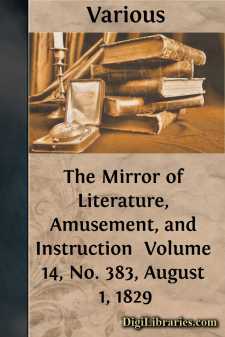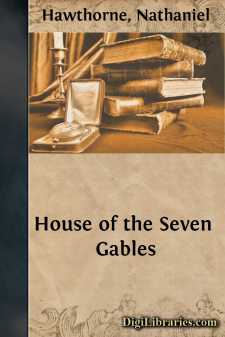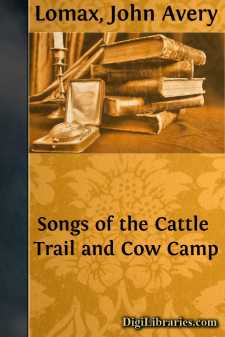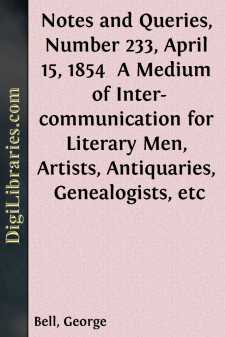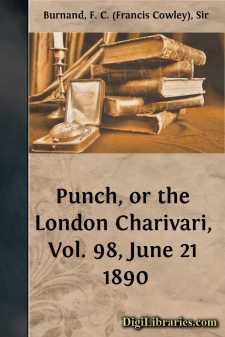Categories
- Antiques & Collectibles 13
- Architecture 36
- Art 48
- Bibles 22
- Biography & Autobiography 813
- Body, Mind & Spirit 142
- Business & Economics 28
- Children's Books 17
- Children's Fiction 14
- Computers 4
- Cooking 94
- Crafts & Hobbies 4
- Drama 346
- Education 46
- Family & Relationships 57
- Fiction 11829
- Games 19
- Gardening 17
- Health & Fitness 34
- History 1377
- House & Home 1
- Humor 147
- Juvenile Fiction 1873
- Juvenile Nonfiction 202
- Language Arts & Disciplines 88
- Law 16
- Literary Collections 686
- Literary Criticism 179
- Mathematics 13
- Medical 41
- Music 40
- Nature 179
- Non-Classifiable 1768
- Performing Arts 7
- Periodicals 1453
- Philosophy 64
- Photography 2
- Poetry 896
- Political Science 203
- Psychology 42
- Reference 154
- Religion 513
- Science 126
- Self-Help 84
- Social Science 81
- Sports & Recreation 34
- Study Aids 3
- Technology & Engineering 59
- Transportation 23
- Travel 463
- True Crime 29
Sort by:
by:
Various
TUNBRIDGE WELLS. With sketches of Dr. Johnson, Cibber, Garrick, Lyttleton, Richardson, &c. &c. For Explanation, see the annexed page. References to the Characters in the Engraving. 1. Dr. Johnson.—2. Bishop of Salisbury (Dr. Gilbert.)—3. Lord Harcourt.—4. Cotley Cibber.—5. Mr. Garrick.—6. Mrs. Frasi, the singer.—7. Mr. Nash.—8. Miss Chudleigh (Duchess of Kingston.)—9. Mr. Pitt...
more...
by:
Dick Francis
One thing Man never counted on to take along into space with him was the Eternal Triangle—especially a true-blue triangle like this! "What's the matter, darling?" James asked anxiously. "Don't you like the planet?" "Oh, I love the planet," Phyllis said. "It's beautiful." It was. The blue—really blue—grass, blue-violet shrubbery and, loveliest of all,...
more...
THE HOUSE OF THE SEVEN GABLES. IN September of the year during the February of which Hawthorne had completed "The Scarlet Letter," he began "The House of the Seven Gables." Meanwhile, he had removed from Salem to Lenox, in Berkshire County, Massachusetts, where he occupied with his family a small red wooden house, still standing at the date of this edition, near the Stockbridge Bowl....
more...
by:
John Avery Lomax
COWBOY YARNS The centipede runs across my head, The vinegaroon crawls in my bed, Tarantulas jump and scorpions play, The broncs are grazing far away, The rattlesnake gives his warning cry, And the coyotes sing their lullaby, While I sleep soundly beneath the sky. OUT WHERE THE WEST BEGINSOUT where the handclasp's a little stronger,Out where the smile dwells a little longer,That's where the...
more...
by:
George Bell
THE TOPOGRAPHER & GENEALOGIST, EDITED BY JOHN GOUGH NICHOLS, F.S.A. The XIIIth Part of this Work is now published, price 3s. 6d., containing: Some Account of the Manor of Apuldrefield, in the Parish of Cudham, Kent, by G. Steinman Steinman, Esq., F.S.A. Petition to Parliament from the Borough of Wotton Basset, in the reign of Charles I., relative to the right of the Burgesses to Free Common of...
more...
Reader, if thou hast never visited the Fern Isles, but intendest to visit them, thou hast a pleasure in reserve—a positive, downright, profitable pleasure—profitable as regards the health of the body, for a trip upon the sea makes the blood feel ten years younger, and dance in the veins as merrily as the waves around us; and profitable also to the mind, by filling it with fresh objects for wonder...
more...
LETTER I MISS BYRON, TO MISS SELBY Miss Byron, To Miss Selby. O my Lucy! What think you!—But it is easy to guess what you must think.I will, without saying one word more, enclose DR. BARTLETT'S TENTH LETTER The next day (proceeds my patron) I went to make my visit to the family. I had nothing to reproach myself with; and therefore had no other concern upon me but what arose from the unhappiness...
more...
"PLACE AUX DAMES!" [Following the brilliant success of Miss Fawcett at Cambridge, Mlle. Belcesco, a Roumanian lady, took her degree to-day as Docteur en Droit. Like Miss Fawcett, she obtained the highest place at the examination for the Licentiate's Degree, and her success was not less brilliant at the examination for the Doctor's Degree.—"Daily News" Paris Correspondent.]...
more...
CHAPTER I INTRODUCTORY—THE COST AND ADVANTAGES OF ACETYLENE LIGHTING Acetylene is a gas [Footnote: For this reason the expression, "acetylene gas," which is frequently met with, would be objectionable on the ground of tautology, even if it were not grammatically and technically incorrect. "Acetylene-gas" is perhaps somewhat more permissible, but it is equally redundant and...
more...
by:
George Hodges
A PURITAN BOYHOOD: WANSTEAD CHURCH AND CHIGWELL SCHOOL The mother of William Penn came from Rotterdam, in Holland. She was the daughter of John Jasper, a merchant of that city. The lively Mr. Pepys, who met her in 1664, when William was twenty years of age, describes her as a "fat, short, old Dutchwoman," and says that she was "mighty homely." He records a tattling neighbor's...
more...


